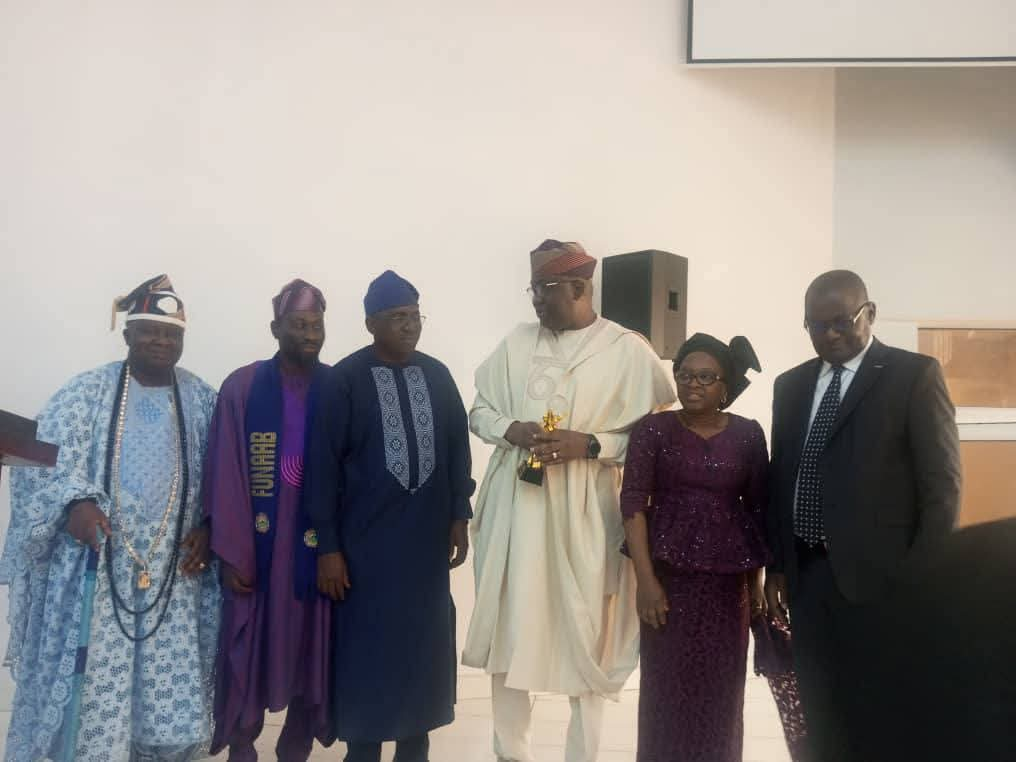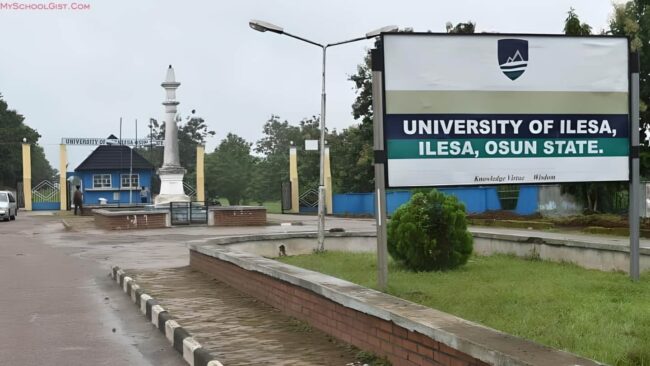- Says our founding fathers built institutions and major infrastructures with proceed of agriculture
At the 27th Annual Convention and Lecture Series of the Alumni Association of the Federal University of Agriculture, Abeokuta (FUNAAB), frontline politician and former presidential candidate, Dr. Gbenga Olawepo-Hashim delivered a powerful keynote address urging alumni to leverage their collective influence to address Nigeria’s crises of rising insecurity, climate change, and dwindling agricultural productivity.
Described as a former prisoner of conscience by Amnesty International, Olawepo-Hashim emphasized the urgent need for alumni associations to secure Nigeria’s agricultural future by launching agro revolution to return Nigeria to the productive path of our founding fathers, who built major edifices and infrastructures with proceed of agriculture.
Speaking at the university campus in Ogun State capital, Abeokuta, he challenged stakeholders to lead transformative interventions that align with national food security goals.
Citing data from the National Bureau of Statistics (NBS), he warned that over 500,000 farmers were displaced between 2022 and 2024, resulting in losses exceeding ₦2 trillion. He highlighted a staggering 70% decline in Middle Belt farming activities, affecting critical crops like maize and yam.
The Chairman of Transnational Energy and owner of the 90MW Magboro Power Plant also linked climate change to a 30% reduction in maize yields and detailed the impact of floods and desertification.
“The World Bank reports that in 2022 alone, floods displaced 1.44 million people and destroyed over 600,000 hectares of farmland,” he said.
Hashim also lamented how poor infrastructure, counterfeit agro-inputs, and rising fertilizer costs stifle productivity. He revealed that post-harvest losses cost Nigeria $9 billion annually, while pesticide contamination led to Europe rejecting 70% of agricultural exports in 2023.
“We cannot afford to act as bystanders while insecurity and climate challenges cripple our food systems,” he declared.
Gbenga Hashim proposed decentralizing farm security, introducing single-digit interest loans for agricultural cooperatives, enhancing river basin investments, and reintroducing price stabilization for farm produce. Alumni associations, he asserted, must rise as powerful policy advocates.
“The prosperity of our alma maters is tied to the nation’s agricultural rebirth. Alumni investments must align with Nigeria’s zero-hunger ambition,” he concluded.
Vice Chancellor Prof. Olusola Babatunde Kehinde praised Dr. Olawepo-Hashim’s presentation, noting the university’s evolution beyond its founders’ vision. “Our target was 5,000 students; today, we admit more than 5,000 in a single session,” he said, also celebrating FUNAAB’s recognition as Africa’s leading agricultural university.
Guest speaker Hon. Gboyega Nasir Isiaka of the House of Representatives reflected on Nigeria’s lost agricultural leadership, attributing its decline to the 1970s oil boom. “Unlocking our potential requires systemic reforms, inclusive growth, and global best practices,” he said.
He also advocated for bold and sustained agricultural revitalization.
In his remarks, Global Alumni President Mr. Azim Bolaji Gbadamosi lauded Olawepo-Hashim’s brilliance and commitment to excellence, revealing that the association had acquired 2,000 acres of land for agricultural development under his leadership.
The convention ended with a renewed pledge from attendees to drive impactful agricultural innovation, security reforms, and sustainable policies.







